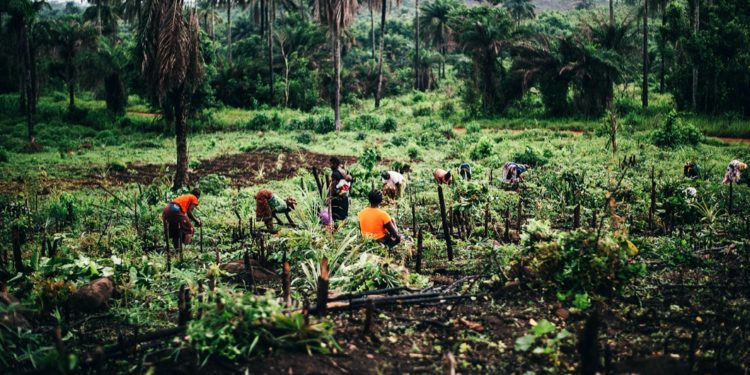By Morrie Koroma
Typically, Sierra Leone experiences two distinct seasons: a rainy season from May to November and a dry season from December to May, characterized by the harmattan winds blowing in from the Sahara Desert. However, in recent years including this year, the weather patterns deviate significantly from the norm, raising concerns about the impact on agriculture, which heavily relies on seasonal rainfall.
Sierra Leone, known for its tropical climate, is bracing for an extended dry spell this year, disrupting the traditional agricultural cycle that sustains much of the nation’s local foods. In a recent statement issued by the Sierra Leone Meteorological Agency (SLMet), alarming news has been unveiled regarding the country’s forthcoming climatic conditions.
The agricultural sector, a cornerstone of Sierra Leone’s economy, is already feeling the strain of these unprecedented weather shifts. Farmers, predominantly engaged in small-scale, subsistence farming, are facing mounting challenges exacerbated by the erratic weather. The recent report from SLMet has highlighted several alarming trends, including increased pest outbreaks, early thunderstorms, and high-speed winds, particularly in lowland and hill areas.
Furthermore, the report predicts a rainfall deficit over the next five years, with certain regions experiencing delayed or early onset of rains. This unpredictability poses a significant threat to farmers’ livelihoods, as it disrupts traditional farming calendars and practices.
Musa Kamara, a local farmer in Kabala in the northern Koinadugu district, shared his experience of the adverse effects of climate change on agriculture. He recounted the financial losses incurred due to planting crops in anticipation of rain that failed to materialize, emphasizing the urgent need for farmers to adapt to changing weather patterns.
Lamenting the lack of access to modern agricultural technologies and weather forecasting tools, Kamara called for greater education and support for farmers, particularly those in rural areas. He stressed the importance of disseminating information from SLMet and the Ministry of Agriculture to remote farming communities, underscoring the critical role of accurate weather forecasts in mitigating financial losses.
Echoing Kamara’s sentiments, Alpha Yayah Mansaray, the Public Relations Officer of the Ministry of Agriculture, urged farmers to embrace adaptive strategies and discard outdated farming practices. Emphasizing the reality of climate change, Mansaray reiterated the ministry’s commitment to providing timely and relevant information to farmers, collaborating with other agencies to ensure agricultural resilience in the face of environmental challenges.
As Sierra Leone grapples with the repercussions of shifting weather patterns, the call for proactive measures and sustainable farming practices grows louder. With livelihoods at stake, the collective efforts of government agencies, meteorological institutions, and grassroots organizations are imperative to safeguarding the nation’s agricultural sector against the ravages of climate change.






















